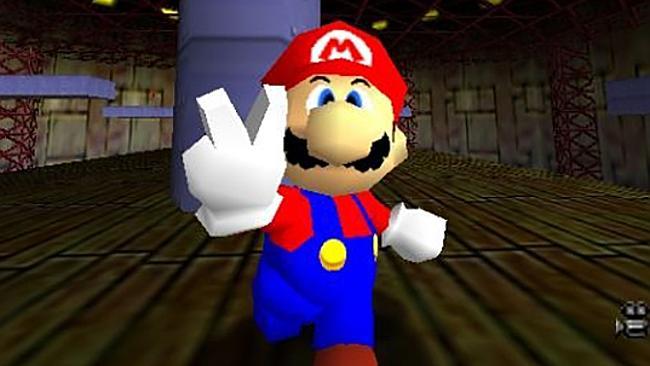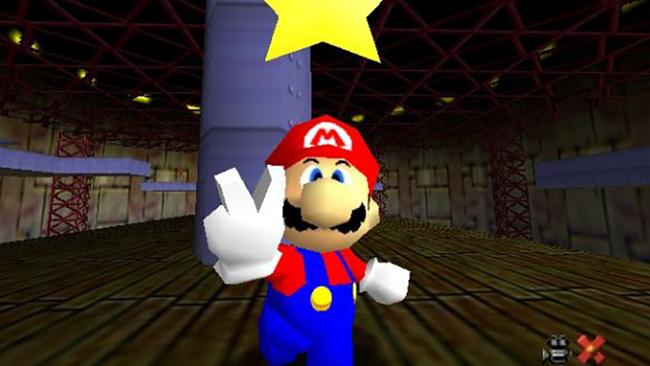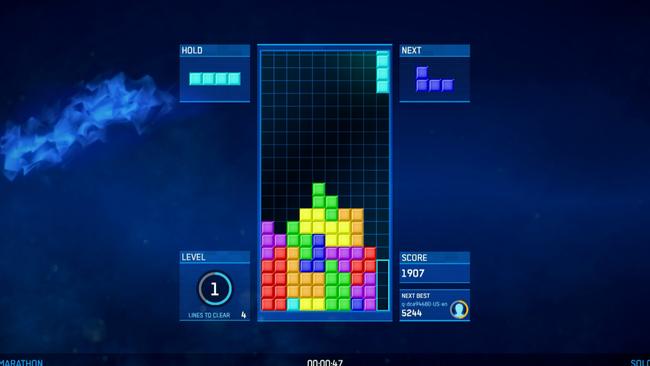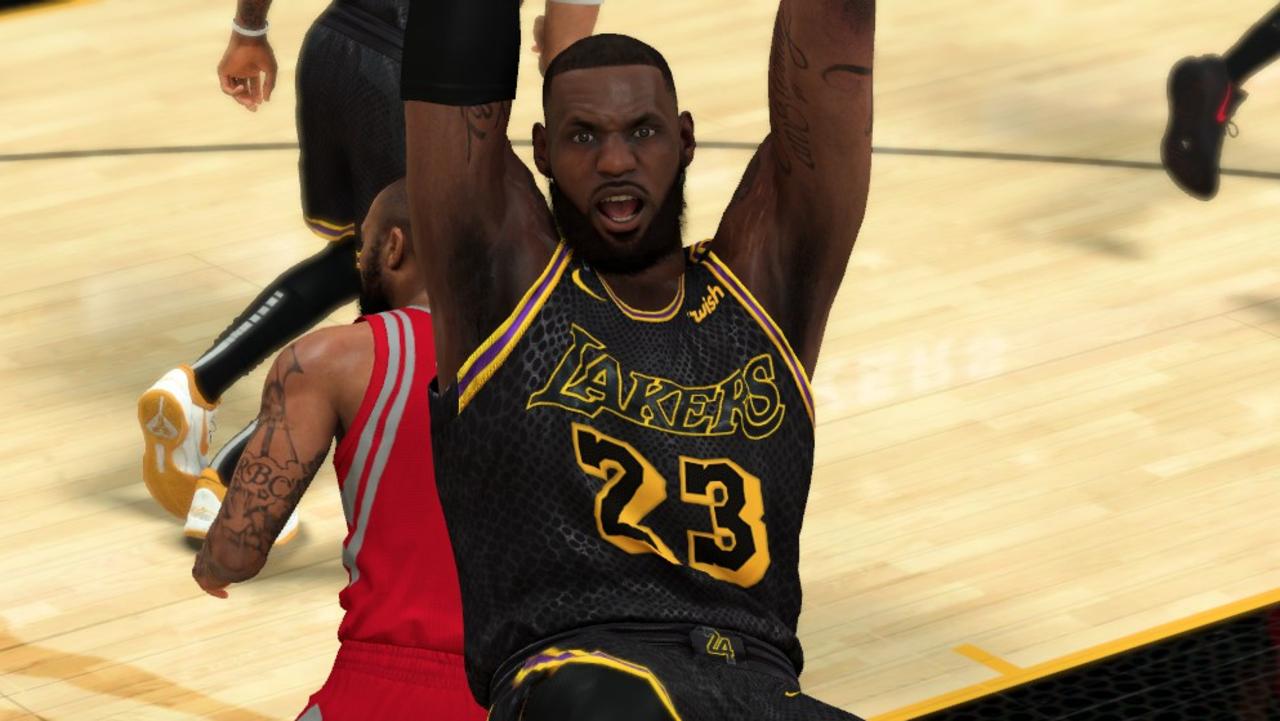Five reasons why video games are good for you
THERE are many misconceptions around that gaming is completely terrible for you, but here are five reasons why gaming is actually good for you.

Game Reviews
Don't miss out on the headlines from Game Reviews. Followed categories will be added to My News.
IT’S been a while since we’ve touched on the benefits of video games on our health and wellbeing.
See here and here if you need a refresher, and then see below for another five ways video games may be better for us than some pundits give them credit for.
They Can Make Your Brain Bigger
Did you know that many species of dolphin have brains that are larger than ours? And they’re out there, with their big brains, just somersaulting about in the ocean and masturbating. Patiently waiting for us to annihilate ourselves so they can inherit the planet.
Now there’s much more to intelligence than brain size but if you’re feeling petty (a distinctly human urge) and you want to get started on bulking up your brain to out-muscle our cetacean competition, look no further than video games.

Research out of Berlin late last year found that playing video games can actually increase brain volume in several regions of the brain.
The study, which was conducted by researchers at the Max Planck Institute for Human Development and Charité University Medicine St. Hedwig-Krankenhaus, found that at least 30 minutes of gaming a day for a period of two months triggered significant grey matter increases in three areas of the brain: the right hippocampal formation, the right dorsolateral prefrontal cortex, and the bilateral cerebellum. These regions of the brain are associated with functions such as spatial navigation, memory formation, strategic planning, as well as fine motor skills of the hands.
Adults were asked to play Super Mario 64 for half-an-hour a day over a two-month period. Brain volume was then measured via MRI and compared to a control group who did not play games at all. The gaming group showed increases but, perhaps most interestingly, these changes were more prominent in the participants who expressed the most desire to play the game.

In addition to preparing humanity for a hostile dolphin takeover it’s believed gaming in this fashion could be used to offset risk factors associated with brain volume in these areas; the research highlights mental illnesses like post-traumatic stress disorder, schizophrenia and neurodegenerative disease as specific examples.
Being Evil in a Video Game Can Make You More Morally Sensitive
Research released last month has suggested that anti-social behaviour in video games actually may make players more morally sensitive, rather than less (contrary to popular belief).
Previous research has found that committing immoral acts in video games can elicit feelings of guilt in players, but a new study led out of the University of Buffalo has found that performing evil deeds in games can also increase moral sensitivity in players. This, in turn, may lead to these players displaying more prosocial behaviour in real-life.
Basically, being a scumbag in video games can make you feel guilty, which may render you more likely to be nicer to other actual humans.

They Can Help Reduce Addictive Cravings
Research out of the UK has found that playing a game of Tetris can help reduce cravings. Elaborated Intrusion Theory suggests that visual imagery is a central part of craving and that, therefore, a visually-based task should decrease craving (and craving imagery).
Researchers used Tetris to try and test this theory. After participants reported if they were feeling a craving (and rated the strength of said craving) they were either given a game of Tetris to play or placed in front of a computer waiting for it to load a program (that, unbeknown to them, would never load).
Participants who played the game of Tetris reported “significantly lower” cravings afterwards, supporting the theory that “a visuospatial working memory load reduces naturally occurring cravings.”
In order words, if you’re trying to get your mind of that second Snickers, maybe a hit of Tetris will take the edge off.

They Can Enhance Cognitive Control in Older Adults
A study of people aged 60- to 85-year-olds, published in Nature mid last year, found that cognitive control in participants could improve by playing a custom video game called NeuroRacer.
Researchers assessed multi-tasking performance with NeuroRacer and noted a “linear age-related decline from 20 to 79 years of age.” However, by playing an adaptive version of NeuroRacer in its multi-tasking training mode, adults between 60 to 85 years old were able to reach levels beyond those achieved by untrained 20-year-old participants. Furthermore, the gains persisted for six months.
Kids With Cerebral Palsy Can Use Them as Part of Their Therapy
Cerebral palsy is a broad term that refers to a group of disorders affecting a person’s ability to move, due to damage to the developing brain (during pregnancy or shortly following birth). Cerebral palsy generally does not worsen over time, but it is permanent and it affects 1 in 500 children. Rehabilitation treatment is a must.
Research into virtual reality therapies for kids with CP has been ongoing since at least the mid-2000s. More recently, a number of programs explored by a variety of organisations over the past few years have found that Microsoft’s much-maligned Kinect and specific, motion-based games developed for it are actually promising tools that can be used in rehabilitation for children with cerebral palsy.
For instance, this small study of 11 children with cerebral palsy who completed eight weeks of video game treatment on top of their conventional physiotherapy found improvements in balance among the participants. Researchers at the Bloorview Research Institute in Canada and the Helene Elsass Center and University of Copenhagen in Denmark have also created programs for Kinect to help kids with CP improve their motor functions.
This article originally appeared on IGN.
Originally published as Five reasons why video games are good for you


